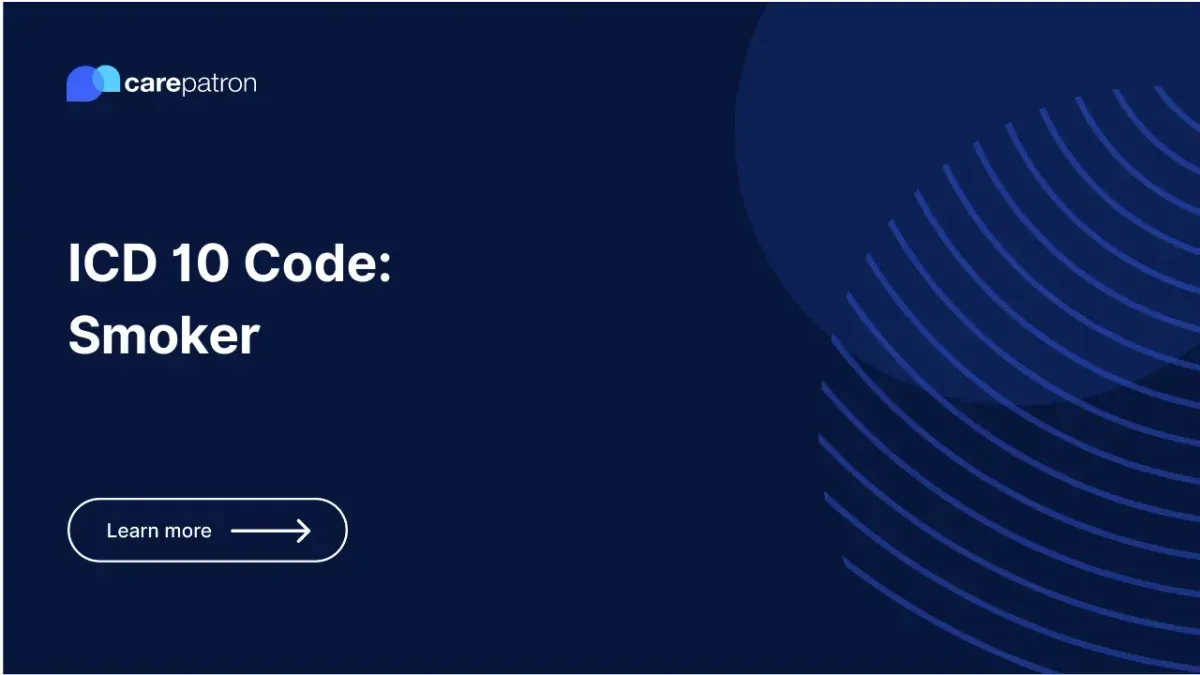
Smoker ICD-10-CM Codes | 2025
Explore 2025 ICD-10-CM codes for smokers, including nicotine dependence, tobacco use, and billable diagnosis codes for accurate care and documentation.
Use Code
Commonly asked questions
You should use a smoker’s ICD-10-CM code when documenting a patient’s current tobacco use, nicotine dependence, withdrawal symptoms, or personal history of smoking. These codes are essential for accurate diagnosis, risk assessment, and care planning.
Yes, most smoker-related ICD-10-CM diagnosis codes, such as nicotine dependence, withdrawal, and personal history, are billable. These codes support reimbursement for smoking-related evaluations, counseling, and treatment interventions.
Treatments often include behavioral counseling, nicotine replacement therapy, and prescription medications like bupropion or varenicline. Patients may also benefit from lifestyle support programs and ongoing monitoring to prevent relapse. Educating them about the toxic effect of smoking can also make a difference.
EHR and practice management software
Get started for free
*No credit card required
Free
$0/usd
Unlimited clients
Telehealth
1GB of storage
Client portal text
Automated billing and online payments
